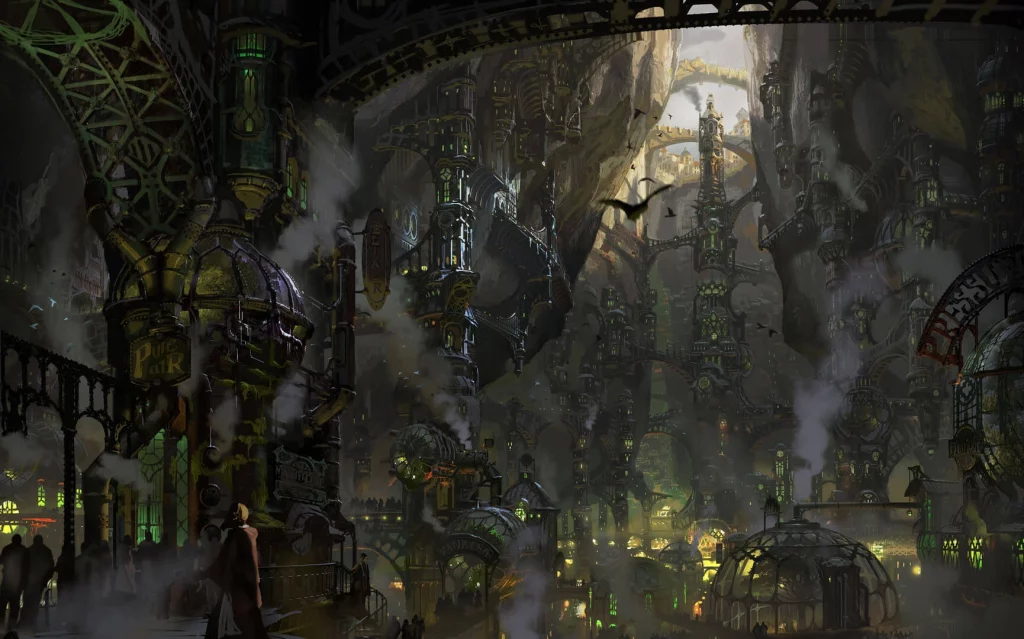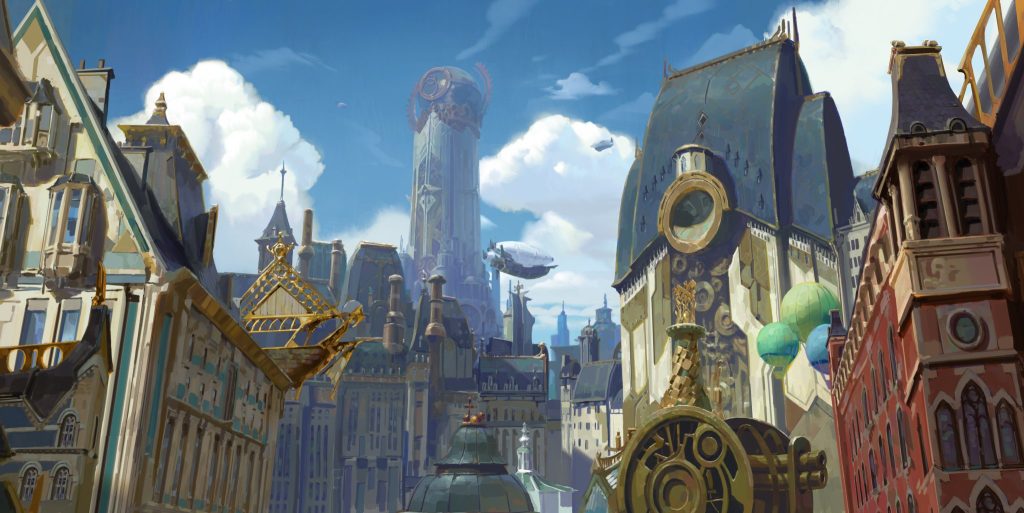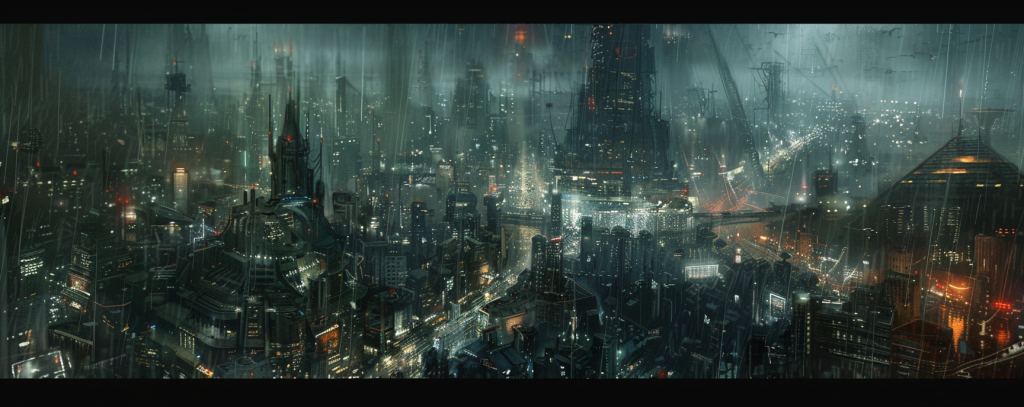The portrayal of corporations in sci-fi media compels us to rethink the ways in which we imagine corporate power. Novels like Neuromancer and movies like Blade Runner examine futures in which these sinister corporations have an almost dystopian level of control over both the citizens and technology. With this media analysis, it seems only appropriate to ask if this is something we should be worried about. Are we heading in this direction? Is this representation realistic, or simply an exaggerated criticism?
Corporate Dominance in Neuromancer & Blade Runner
“Neuromancer” by William Gibson describes a dystopian vision of corporate control. Set in a dystopian world run by these amoral corporations and technology used to serve them. Our protagonist, Case, is forced to serve as a chess piece in these corporate schemes. Gibson employs this character to explore the consequences of giving corporations total control over technology and morals. This strategy is reflective of the trepidation we have in modern day about big business, specifically regarding technology. In largely unregulated arenas like artificial intelligence and genetic modification, decisions made by corporations may well have disastrous societal consequences.
Similarly, in “Blade Runner” the Tyrell Corporation is the very embodiment of corporate dominance. In this society, they are not only building impressive AI and replicants, they have also infiltrated every aspect of society. This dystopian world emphasizes the dangers of unchecked corporate power, which puts the autonomy of citizens in jeopardy. Dr. Eldon Tyrell is the archetype of corporate ambition at any cost, ethics be damned, living in a world where artificial beings have constant questions about their existence. The dominance of Tyrell suggests a vaguely dystopian future in which technological progress trumps ethical imperatives. And this theme reverberates in our world, where companies like Meta and Google decide how we interact with ourselves, receive information, and move through life.
Hyperbole or Cautionary Tale?
Sounding in many ways absurd, both Blade Runner and Neuromancer show us their own corporate worlds as a kind of warning. These two stories underscore the dangers of unrestrained corporate power and need for ethical guidelines and government oversight. Elite corporate power — the kind of human baggage carried by mega-companies such as Tyrell or those in Gibson’s world — is slightly outrageous, sure, but it encourages us to get up a bit on our high horses and contemplate how Big Corporate had us scurrying about today and why we may need systems that preserve individual freedom and contribute to the public good.
In conclusion, even if Blade Runner and Neuromancer give hyperbolic, nightmarish visions of corporate dominance, they are playing to real fears about the contemporary business world. These are not merely critiques; they represent calls to action, exposing some of the more important ethical limits that should be imposed on technology and corporate power, along with by implication warning us about the need for government protective measures defending the public interest.






